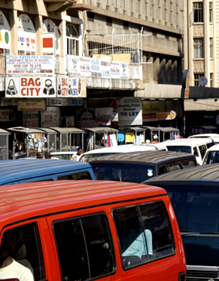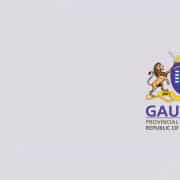|
Getting your Trinity Audio player ready...
|
 Auditor-general Terence Nombembe gave a grim view of financial management at local government level this week, with just 30% of municipalities making progress in addressing internal control disciplines.
Auditor-general Terence Nombembe gave a grim view of financial management at local government level this week, with just 30% of municipalities making progress in addressing internal control disciplines.
Nombembe said he “remains concerned about 70% of municipalities where the basics of key controls have not yet been mastered”.
Nombembe tabled his 2010-11 general reports on audit outcomes of local government in parliament on 23 July, where he spoke of a “growing trend of irregular expenditure” in supply chain management.
A total of 13 municipalities – a mere 5% of the country’s total – received clean audits this year, six more than last year. They are in KwaZulu-Natal, Limpopo, Mpumalanga and Western Cape.
No municipalities in Eastern Cape, Free State, Gauteng, Northern Cape or North West received clean audit reports. And just four municipal entities registered clean audits, down from 10 last year.
“We are seeing the impact of the lack of skills, the slow response of leadership to owning key controls, as well as the absence of managing poor performance and the risks that municipalities continue to face. At the moment these risks are beyond tolerable levels,” said Nombembe.
The major risks were:
- Supply chain management, which was showing a growing trend of irregular expenditure;
- Predetermined objectives (service delivery reporting), which showed some improvement in certain provinces;
- IT controls, which showed minimal improvement in terms of internal control;
- Human resource management, which showed minimal improvement; and
- Significant errors in financial statements, which showed no improvements at all despite the increased use of consultants.
These results come despite the launch of government’s Operation Clean Audit in 2008. The auditor-general also introduced regular meetings with municipal, provincial and national political leaders to discuss key controls and to identify threats to clean audits. Yet Nombembe said these “engagements helped to create greater awareness on matters that require urgent attention to enable the realisation of clean administration in local government”.
Almost half of audited municipalities – 156 out of 343 or 45% – received financially unqualified audit reports, but with internal control concerns. And they were only obtained after corrections were made during the audit process, and with the assistance of the auditors, Nombembe said.
Financially qualified reports were received by 18% of municipalities; 19% received adverse opinions or disclaimers; and 13% of municipalities, in North West, Northern Cape and Western Cape, had not submitted financial statements in time for auditing.
Nombembe blamed the slow progress in getting clean audits in local government on three causes. Firstly, 57% of municipalities showed a slow response to messages from the auditor-general and the implementation of key controls. Secondly, there was a lack of consequences for poor performance and transgressions at more than 70% of auditees; and 72% of auditees showed a lack of minimum competencies of officials in key positions, most evident in the financial discipline.
The lack of skills was evident in the many errors that needed to be corrected by auditors during the audit, “despite consultants that were brought in to assist municipalities having increased from 86% last year to 91% of municipalities in 2011”.
Mpumalanga notches up results
Mpumalanga received four clean audits, the highest percentage of clean audits in the country for this period. Nombembe attributed the improvement to strong internal controls and management’s implementation of the previous year’s action plans. Around 48% of the local government leadership was not taking the message of the auditor-general of South Africa seriously, according to Nombembe’s office. For 67% of the municipalities there were no consequences for poor performance and at most of the municipalities (81%), officials did not have minimum competencies and skills.
KwaZulu-Natal moves forward
There were five clean audits in KwaZulu-Natal municipalities in the 2010-11 financial year, moving from no clean audits in the previous financial year. But to sustain this momentum, Nombembe said local government leadership should focus on the lack of appropriate skills at 61% of municipalities; stop poor performance management practices at 51% of municipalities and address the 21% of municipalities were leaders did not show “the appetite to take ownership of good governance practices at their institutions, as is evident from the disregard for challenges previously identified by the audits”.
Free State a concern
Apart from one dormant entity in Free State that recorded no transactions for the year under review, no municipality or entity received a clean audit in the 2010-11 financial year. But the 23% of municipalities and entities that received unqualified audit opinions were closer to clean audits. “The current audit opinions do not bode well for the drive towards clean administration,” said Nombembe, adding that: “The lack of progress is due to the lack of basic accounting disciplines and a failure to retain supporting documentation.”
Limpopo shows regression
Two municipalities in Limpopo got clean audits, while about 12% received unqualified audit opinions with findings, 82% received qualified, disclaimed or adverse opinions or did not submit financial statements for auditing.
“The province’s latest local government audit results also showed a number of regressions and an increase in unauthorised, irregular as well as fruitless and wasteful expenditure,” said Nombembe. Only 8% of the municipalities had implemented good internal controls that ultimately resulted in good outcomes. At 46% of the municipalities, key controls were being implemented, while 44% needed serious intervention to implement basic accounting controls.
Eastern Cape posts small improvement
The audit outcomes of the Eastern Cape local government revealed minimal improvement and general slow progress towards unqualified opinions (with findings or concerns), with the province showing an overall improvement in four of the audit outcomes, said the auditor-general. Of the 45 municipalities and 10 municipal entities audited, no municipality received a clean audit opinion (unqualified without findings). Internal controls required urgent intervention at roughly half of the municipalities, he added.
Northern Cape has serious deficiencies
The poor audit outcomes in the province reflected the serious skill and internal control deficiencies at its municipalities. There had been little or no progress in the areas of supply chain management, service delivery reporting, human resource management, information technology controls, and material errors in the financial statements.
Nombembe urged local government in Northern Cape to address skills shortages at its municipalities urgently, especially at municipal manager and chief financial officer levels. Eight of the 21 municipalities received an unqualified opinion with findings or concerns, with 59% of the municipalities receiving either qualified or disclaimed opinions. Of the nine municipalities that submitted financial statements late for audit, eight had their audits completed subsequent to 31 January 2012 and were all in the qualified or disclaimer categories.
North West has no clean audits
For the second consecutive year none of the 24 municipalities and four municipal entities in the province received a clean audit. According to the auditor-general, this province has stagnated in five critical areas, namely supply chain management, predetermined objectives (service delivery), human resource management, information technology controls, and material errors and omissions in the financial statements.
Gauteng has a setback
Local government’s progress towards clean audits in Gauteng had a setback, with five of the municipal entities that had achieved clean audits at the Johannesburg Metropolitan Council regressing to unqualified audit opinions, leaving only two municipal entities with clean audit status in 2011. Also noteworthy was the elimination of the disclaimers of audit opinion that were received in the previous year at the Tshwane Metropolitan Council.
Western Cape is stagnant
Two municipalities attained clean audits, a result of the efforts by leadership to monitor the implementation of a credible action plan to address past audit findings. Nombembe said that 73% of the province’s other municipal audit outcomes for 2010-11 were “characterised by stagnation at the level of unqualified audit opinions, while 9% were still qualified and 12% did not submit financial statements in time for audit purposes”.
Going forward
The auditor-general's office said it would continue its municipal door-to-door visits, with a view to monitoring and evaluating the status of improvements and sustainability of the key internal controls, as well as leadership. It would continue to share its insights with provincial executives and oversight leadership quarterly, and to work closely with internal audit units and audit committees in attempts to obtain more clean audits in the future.









